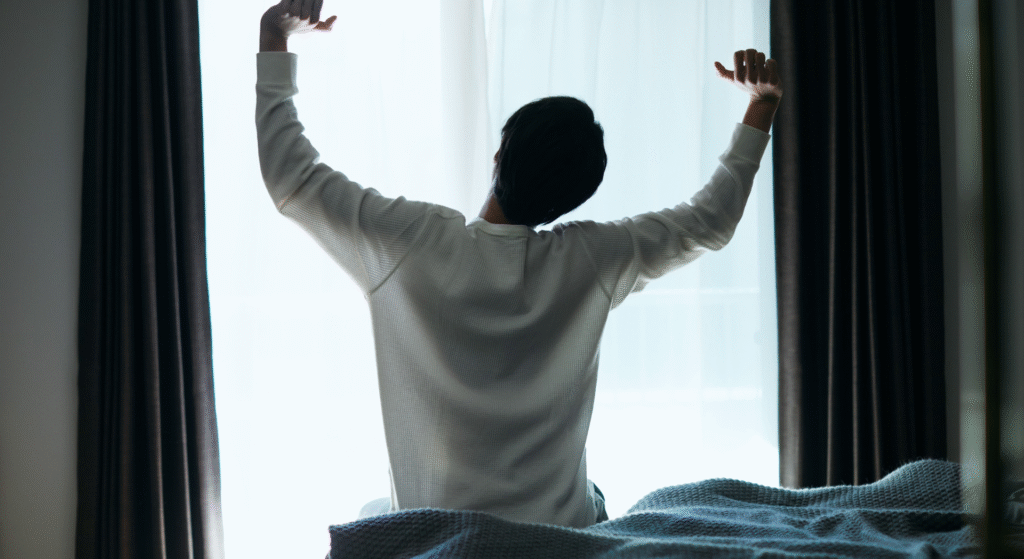I remember when mornings used to feel stricter—almost like punishment. My alarm would go off, and I would hit snooze over and over until it was far too late in the day. I never understood why some people woke up early and actually enjoyed it.
They described the calm, how much they got done, and how the rest of their day felt lighter. I wanted that. But I was a wreck in the mornings—my energy came at night, and by the time I finally went to bed, I was already too late to wake up feeling refreshed.
What I eventually learned—slowly—was that becoming a morning person didn’t mean forcing myself into a routine I hated. Over time, the early mornings began to feel familiar, even sweet. I started to understand why people valued them: the silence, the space to think, the sense of lead before the day began.
Becoming a morning person means shaping your routines so that both your body and mind welcome the early hours. It’s not magic, nor is it a special gift some people are born with. You can get there too, and here’s how.
1. Give Your Body Weeks to Adjust Sleep Time
You can’t expect to love mornings if you suddenly move your bedtime up by three hours. Start small—go to bed just 15 to 30 minutes earlier than usual, and wake up 15 to 30 minutes earlier.
Your body runs on a circadian rhythm, and it needs time to adjust. The National Institute of General Medical Sciences explains that keeping regular sleep and wake times helps stabilize energy and mood. Slow adjustments help you adapt without feeling sleep-deprived.
Read also: 15 Morning Routine Ideas for Women
2. Create a Bedtime Routine That Signals Sleep
Spend your evenings easing your mind toward rest. This might mean dimming the lights, taking a warm shower, or reading quietly. Avoid bright screens an hour before bed—blue light interferes with your sleep hormones.
The calmer and darker your evenings, the more refreshed your mornings will be.
3. Use Morning Light to Reset Your Body Clock
Light is one of the strongest signals for waking your body. Sunlight in the morning tells your brain it’s time to be alert. If possible, open your curtains as soon as you wake up or step outside for a few minutes.
If sunlight isn’t available, consider a sunrise alarm clock that mimics natural light. The Sleep Foundation notes that early light exposure can boost mood and alertness for the day ahead.
Read also: Daily 2-hour morning habits for better life
4. Avoid Stimulants Late in the Day
Caffeine, nicotine, and heavy, sugary meals can make it harder to fall asleep, which makes mornings harder too. Avoid coffee or energy drinks at least six hours before bedtime so your body can rest fully.
5. Give Yourself Something to Look Forward to
It’s easier to get out of bed when you have a reason. Plan something enjoyable for the morning—a walk, a favorite breakfast, or time to read before the day begins. Positive anticipation helps make mornings a habit you’ll want to keep.
Read also: 6 Hacks on How to Consistently Wake up Early Every Morning
6. Put Your Alarm Across the Room
If your alarm is within arm’s reach, you’ll likely hit snooze without thinking. Place it across the room so you have to physically get up to turn it off. This simple change can break the cycle of groggy, endless snoozing.
7. Start the Day Calmly
If your mornings are rushed and stressful, you’ll dread waking up early. Instead, spend your first few minutes drinking water, stretching, or sitting quietly. The gentler the start, the more you’ll want to repeat it.
8. Go to Bed Before You’re Overly Exhausted
Many people wait until they’re completely worn out to go to bed, but that can actually make falling asleep harder. Going to bed before you’re drained helps you relax into sleep more easily and keeps you from lying awake overthinking.
9. Keep a Consistent Schedule on Weekends
Your body doesn’t know the difference between weekdays and weekends. Sleeping several extra hours on your days off can throw off your rhythm. Even on rest days, try to wake up within an hour of your usual time. This makes early mornings feel natural instead of forced.
10. Listen to Your Body’s Need for Rest
Becoming a morning person doesn’t mean ignoring your body’s signals. If you’re constantly tired, you may be getting too little sleep or have an underlying sleep issue. The Centers for Disease Control and Prevention recommends at least seven hours of sleep per night for adults to stay healthy and perform well.
Final Thoughts
You don’t have to force yourself into a strict, joyless schedule to become a morning person. The goal is to create routines that make mornings feel like a gift rather than a burden.
With time, you’ll find yourself not just tolerating mornings, but enjoying them—a quiet, fresh start before the world gets busy.
Save the pin for later



